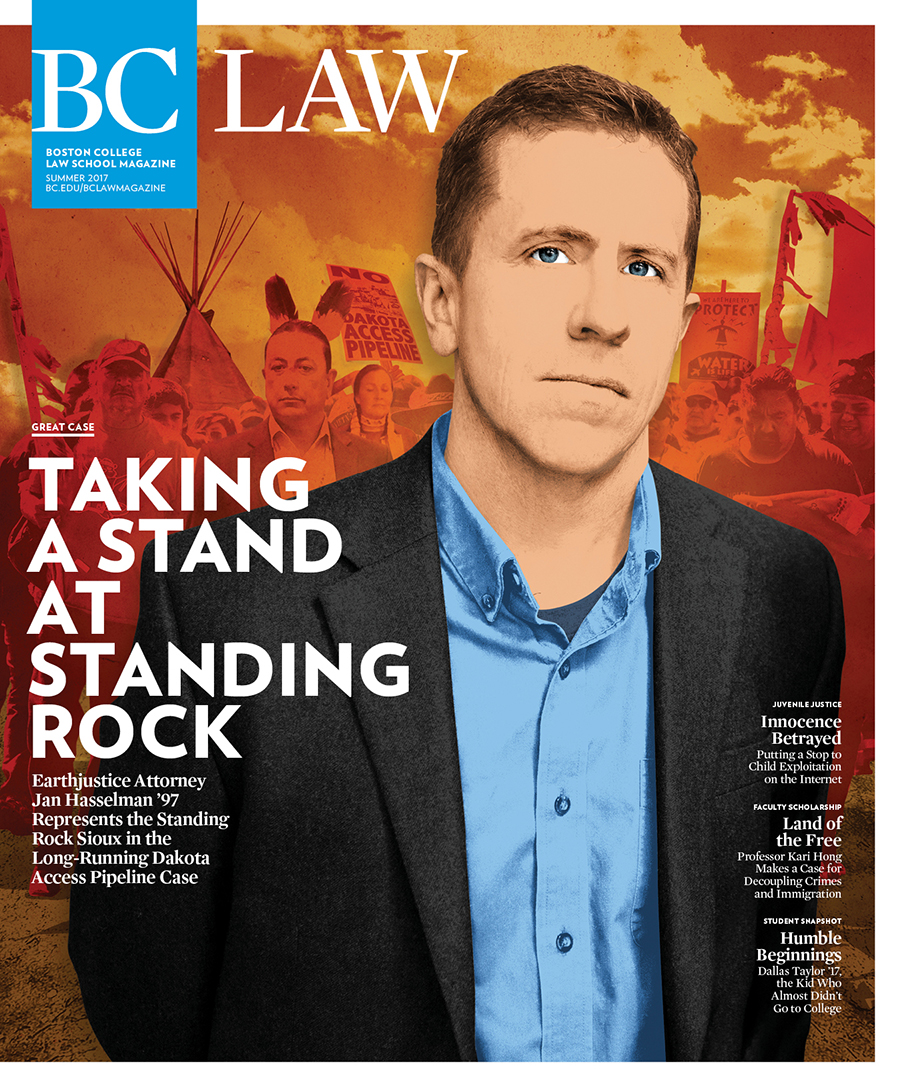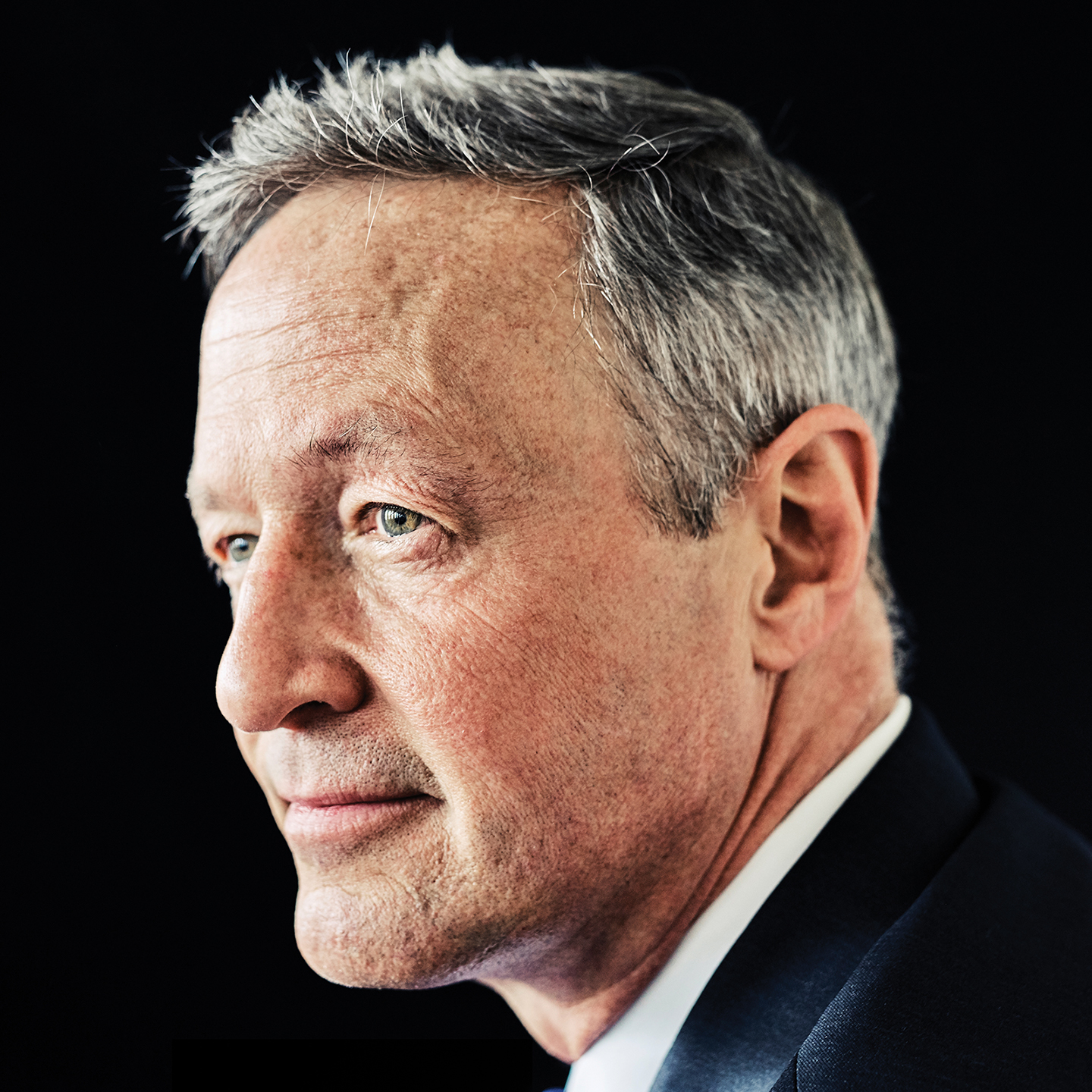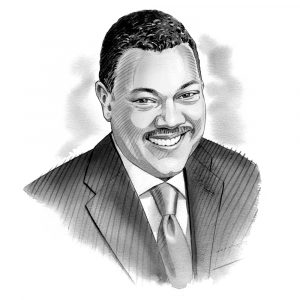Martin O’Malley, a 2016 presidential candidate who served as governor of Maryland and mayor of Baltimore, taught this past spring as BC Law’s first Jerome Lyle Rappaport Visiting Professor. His course, Performance Management and Leadership in the Information Age, reflects the expertise he brought to his career in government. O’Malley sat down with Dean Vincent Rougeau and the two explored topics in community, leadership, and getting unstuck as a nation.
MO’M: One of the biggest challenges facing us as a country right now is a lack of trust—in one another, in our public institutions, in our national leaders.
VR: At the local level, we seem to be doing a much better job at building relationships. Boston, for example, went through some difficult times thirty, forty years ago. Lots of relationships were strained. But then the work was done to re-inspire trust, to help people understand that it’s everybody’s city, that this region belongs to all of us who live here, that together we can make life better here and everywhere. I think you can see that in cities all over the country.
MO’M: When I was on the Baltimore City Council, some very wise African American women who were leaders in their community said to me, O’Malley, what you will find is while it takes a little longer to have community dialogue, the ultimate decision will have more integrity and you will be more effective as a leader. In 1999, when Baltimore had become the most violent, the most addicted, and most abandoned city in America, I ran for mayor as a white man in a majority African American city. The conversations we had were about justice and injustice. We put Baltimore on a path to the biggest reduction in crime over the next ten years. And when, for example, a white officer was found planting drugs on a black suspect who did not match the description that the undercover detectives had called in, we owned that. The short-term political hit was worth the long-term build-up of trust.
VR: I’m interested in the kind of coalition-building that looks at communities as meaningful collections of individuals and families with real problems, not just as members of demographic groups—African American, Jewish, LBGTQ— that are presumed to vote a certain way.
“We have to be able to imagine different sorts of solutions, to imagine ourselves standing in the shoes of those with a different perspective.” —Governor Martin O’Malley
MO’M: There’s very much a new networked activism taking place. But will it enable and facilitate our ability to communicate with others who are not of a like mind? There’s a certain uneasiness with what [Alexis] de Tocqueville called the strength of our soft ties—the ability to find common ground even when we are opposed in our political views. Hopefully, the next generation will find a way to heal this and bring it back to a wholeness.
VR: The turn our country has taken on immigration is putting something very valuable at risk, and that’s our ability as a university to draw people together from all over the world to be a part of this extraordinary and exciting community of ideas. If we aren’t in a global conversation at a time when our problems are global, our economy is global, the movement of people is global, we aren’t going to be doing our best work. If we start closing down, I would worry very, very much for our country’s future.
MO’M: I met with an undocumented immigrant family down in Austin, Texas, a mom and dad and two little girls. Their third daughter, Abigail, was born here. She told me through her tears that every day as an eighth grader she goes to school and worries that, when she comes home, the door will be kicked in and her family will be gone. That’s no way for a decent nation to treat its children.
In his first joint address to our national elected representatives, our new president chose to use a sizeable portion to cast in a criminal light all immigrants. That sort of intentional use of scapegoating language in the well of our House of Representatives gives license to that language. The challenge is how do we call that out and at the same time elevate the level of discourse?
VR: One thing I hope we can do in legal education is to get people to think more about issues and problems, and less about right wing/left wing.
MO’M: The mayors’ mantra is: there’s no Democratic or Republican way to fill a pothole. How will we recover our ability to have a more nuanced conversation? I think the Ignatian term for that is imagination. We have to be able to imagine different sorts of solutions, to imagine ourselves standing in the shoes of those with a different perspective. That’s been our genius as a nation for our first 240 years. Let’s hope we recover that. I think we will.
To watch the full interview with Dean Rougeau and Governor Martin O’Malley go to goo.gl/rqm3gp.




